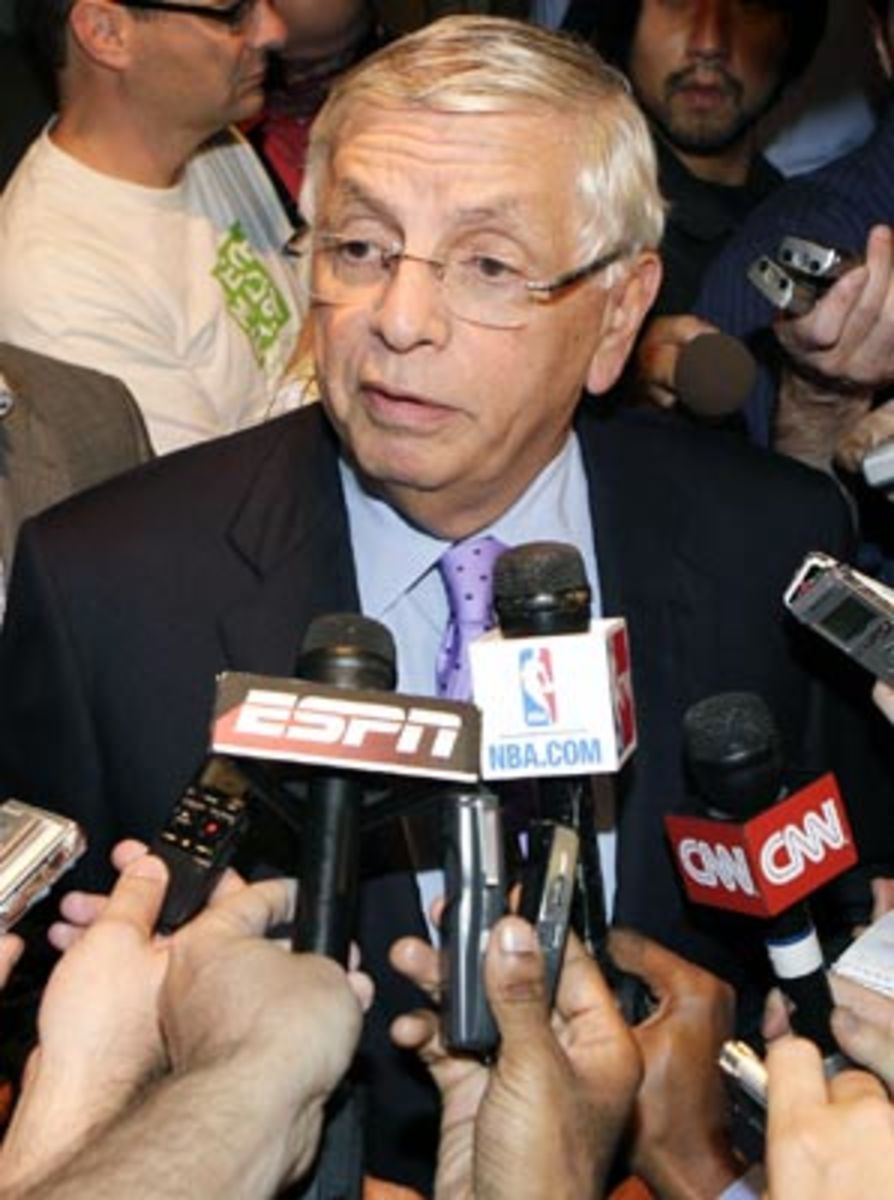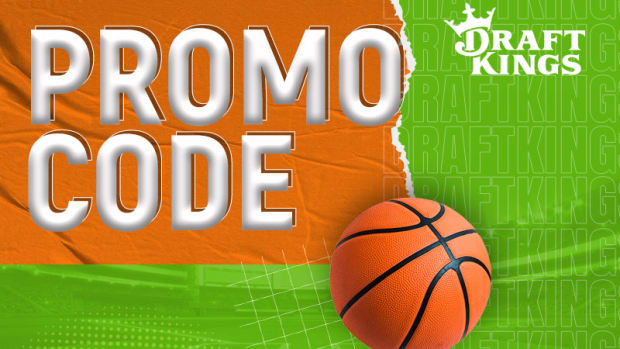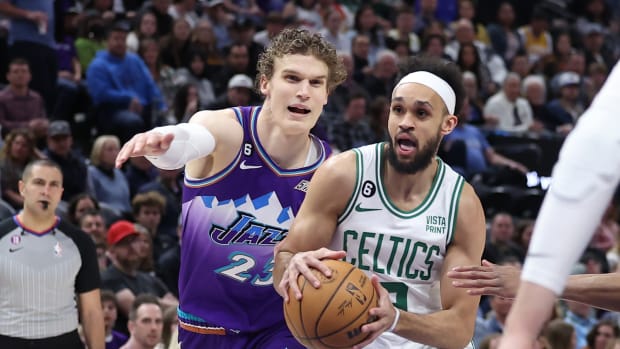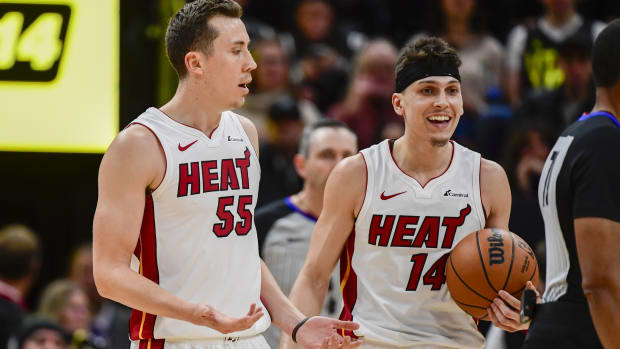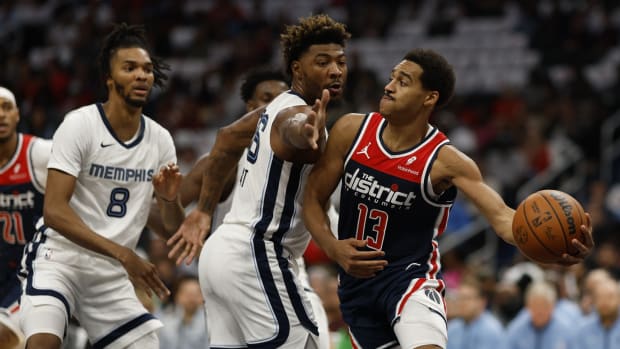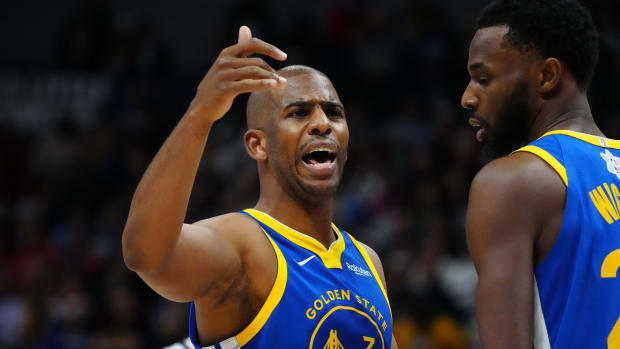NBA season can still be salvaged, but quick resolution is unlikely
Understand that two weeks of NBA games have been wiped away, and that more cancellations are to come. Nothing important is likely to change over the next two weeks that will enable basketball to be played in late November or early December.
On and on it will go, with both sides looking back to the salvation of the '99 lockout. That resolution a dozen years ago may have influenced these extended talks that failed Monday night in New York. As much anxiety as both sides were feeling to reach an agreement this week, they weren't experiencing the ultimate pressure that will be felt later this winter when the entire season is at risk. "The problem," said a former league official who was involved in the negotiations that shortened the 1998-99 season to 50 games, "is that people tend to look at early January as the drop-dead date."
He was worrying that the absolute final offer from either side may not emerge for another 12 weeks. Not until the final days of this calendar year will the owners fully understand the consequences of losing a full season during a recession, while more than 400 players find themselves confronted with the likelihood of a full year without an NBA paycheck.
In many ways these entire negotiations have gone according to form. It is not the formula anyone would have desired, but it has been entirely predictable. The owners lock out the players July 1, with little negotiating done for most of July and August, followed by sudden urgency to make a deal that can save the full season.
But the full season was never going to be saved because the owners are seeking to overhaul a system they say has resulted in $1.1 billion in losses over the last three years, including $450 million in operating losses suffered by 22 franchises this past season. They are seeking the kinds of major changes that cannot be negotiated simply.
The players believe they've already given up enough by dropping their share of basketball-related income (BRI) from 57 percent to 53 percent. The surprise, as hinted by commissioner David Stern, is that the split in revenues is not turning out to be the deal-breaker -- that the split of money might have been negotiable so long as the union and owners had been able to figure out how to replace the luxury-tax system that has enabled richest franchises to grossly outspend the not-so-rich.
They spent the last two days trying and failing to agree on a new system. The owners insist they need a mechanism that enables all well-managed franchises to earn a profit and contend for the championship against the Mavericks, Lakers, Celtics and other big luxury-tax payers. But the players, in return for their willingness to take a smaller slice of revenues, want to maintain most of the contract provisions of the previous collective bargaining agreement.
At heart, the players are fighting to maintain their right to guaranteed contracts. This has always been their crucial issue. Stern said the owners have offered to uphold that right for all players, but union president and Lakers guard Derek Fisher insists that the owners' proposal of a highly punitive luxury tax will have the impact of a hard cap on team payrolls, which in turn will prevent teams from guaranteeing the contracts of most players.
There are other disagreements as well, but the argument of equality among clubs vs. job security for players is proving to be divisive -- a "blood issue," as union chief Billy Hunter has referred to the hard cap on payrolls.
So what comes next? In mid-November, the players will go unpaid for the first time since the 1998 lockout that canceled 32 games. Some teams will claim to lose less money than if they were forced to compete under the rules of the previous CBA. Jerry Buss of the Lakers and Jim Dolan of the Knicks are among the profitable owners who are going to suffer from the loss of games, but as a group it goes without saying that the owners will be able to withstand these cancellations longer than the players.
"If there's no deal and we start losing games," one owner predicted last year, "then we're going to hold out until the players surrender, and we'll wind up getting everything we want."
The union has viewed this kind of threat as an attempt to force players to agree to a deal quickly and painlessly in time to start an 82-game season. Now they'll learn if the threat is real.
Both Fisher and Hunter said they had predicted the owners would cancel games. At the same time, another union source noted that in recent weeks the owners have been aggressively pushing for talks to save the 82-game season. After opening negotiations last year with a demand for $800 million in annual givebacks from the players, the owners improved their offer to a more reasonable 50-50 BRI split, bringing them within range of an agreement on that issue.
So now each side will watch and wait to see how the cancellations alter the opponents' stance. A fortnight without basketball is not going to lead to a major change in priorities, so expect more games to be lost into December.
Both sides have acknowledged that their positions are likely to grow more entrenched than ever once games are canceled, according to NBA deputy commissioner Adam Silver, because the loss of receipts from the gate, TV and sponsors leaves less money to be shared. "We have to account for the losses that we're suffering," Stern said on Monday. "So those losses will be factored in as we move forward."
There has been tremendous fear from both the players and owners of alienating their supporters, who will be infuriated that a relatively small group of adults cannot agree how to share the proceeds of their $4 billion industry. But the bigger risk is indifference. What if a large number of fans realize they can live without the NBA? That they're happy enough to focus on the NFL, March Madness and baseball over the months ahead?
Anger from fans will be a positive sign, because it will mean they have a stake in pro basketball. But if the fans come to realize they couldn't care less about the NBA during a recession that has forced millions of Americans to make choices that are far more harsh than whether to continue supporting the 76ers or the Nuggets, then it will be very difficult to win them back. This threat is very real, and it is entirely self-imposed. Games have been canceled in favor of another kind of game, a game that is very dangerous to the NBA, and both its owners and players are complicit.






























